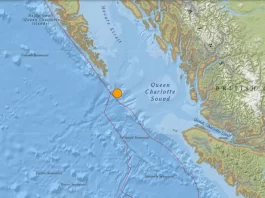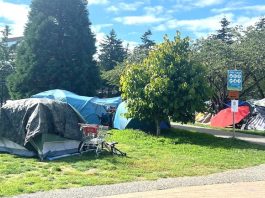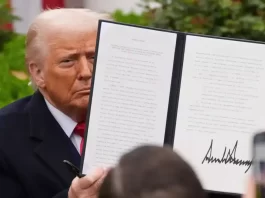Interviewed by Katie Stobbart.
Since many students will be voting or taking an interest in municipal politics for the first time, what would you describe as the role of local politics? What can city councillors actually do?
City councillors are very powerful. City politics is really important, because everybody is really local and the thing here is they impact our lives 90 per cent even though they only get like 10 per cent of the funding. Like, 90 per cent of the impact from government is on a local level. The federal government gets a larger percentage of your tax money but they really give you less services.
Who do you view as your constituents?
Informed citizens. People that play into the major parties and the marketing don’t understand the issues. I can talk very well on any subject and I never study what the topics of the debate are, for the simple reason that I have a philosophy as opposed to a stance on every issue. Like my philosophy is about freedom, lower taxes, and a gang-free society. And other people may have a stance: on say, street prostitution they’ll have one stance; on homelessness they’ll have another stance; on taxing churches they’ll have another stance. But if you view government, as in any time they give away money it’s welfare, that’s like welfare to the churches, then welfare to the corporations. And we don’t need that. My major constituents are people who are informed of what a more livable community really means.
How will you receive or gather the views and desires of the entire constituency instead of just those most active around City Hall?
Well, you know with email today, everybody’s local. I won’t use any special techniques, the only thing is that I will follow through on what I say. Most people when they talk to politicians, the politician says, “yeah, yeah, yeah” and they pat them on the head and they go on about their business and nothing happens. I would deal with the problems and solve them, rather than keep putting them off to the future like we’re doing now. Especially with an issue like the homelessness. I mean, how many people have complained about the issue and how much money has Abbotsford spent on it, dealing with the drugs and homelessness, and they’re still dealing with it. So, you know, I would solve the problems.
Are you doing anything to address the lack of student interest in local politics?
I’m coming here to talk to you. That might not seem like a lot, but you have to understand several things: One, that I’m not going to get elected. Two, that it’s an uphill battle trying to educate people; it’s a thankless job; there’s no money in it. And three, I’m hoping that in the future I’ll have a store so people will come in and see me rather than the way we’ve been doing it. Like I try and contact them.
If elected, how would what you want to do as councillor be different from what council is already doing?
I’d solve the problems. Some of the things I’d do is I’d put a cap on the city budget, and I wouldn’t vote for any new taxes at all. I would tax marijuana at three per cent and the money would go to the local government as opposed to the federal or provincial government. I would cut the police budget by $10 million a year and I would lower the bus fare to one dollar because, you know, half the time the buses ride around empty. More than half the time they’re 90 per cent empty! And I would pass bylaws so that all police officers have to wear those cameras. And then I would put pay phones in the city. Because they’ve taken out all the pay phones. And I would stop tax credits and other incentives to the churches and the Abbotsford Downtown Business Association because that’s just government welfare. And I would stop the city from paying advertising, like to the Abbotsford News. I would just attempt to shrink the size of government at all levels, especially the federal and provincial.
When I say I’m not going to get elected, I’ll get elected eventually, but when I started in 1999, you say the word “marijuana” and people would attack you. Now it’s a lot more open, it’s a lot more freer, and in the future as it becomes more accepted, my policies will be more common and more understood.
Do you have a specific project you want to prioritize or bylaw you want to change?
I’d bring in harm reduction programs. I majored in environmental economics at Ohio State University, and you can look at the economic models, and what they demonstrate is that drug prohibition is the causation of all this homelessness and this violence and basically the social pollution of gangs and stuff like that. If we ended the drug war, that would solve a lot of problems, if we regulate these things and we bring in harm reduction programs.
You know about the chicken manure incident in town. These are war crimes. These are crimes against humanity. Everybody thinks that they can just go and do whatever they want to the homeless people, and there’ll be no repercussions. You know, you can’t do this. What it is, is that if we don’t allow these people a place to say, you don’t allow yourself a place to stay.
You asked me if I had any issue that was more important than any other one. There is no issue that you can talk about except that government is out of control. And I don’t think there’s anywhere it’s more exemplified than here in Abbotsford. They have absolutely no rights allocated to the drug-addicted homeless. The way they attack people in this community has got to change, and the best way to do it is to look at who we were before we really started this drug war in 1999. And in 1999 the Abbotsford police budget was $3 million, and I know the population of the city has doubled since 1999, but that doesn’t mean we need to — it’s $50 million now. I think reducing the police and taking care of the homeless are one issue, and the issue is our future and our rights.
This interview has been edited for length and clarity.



